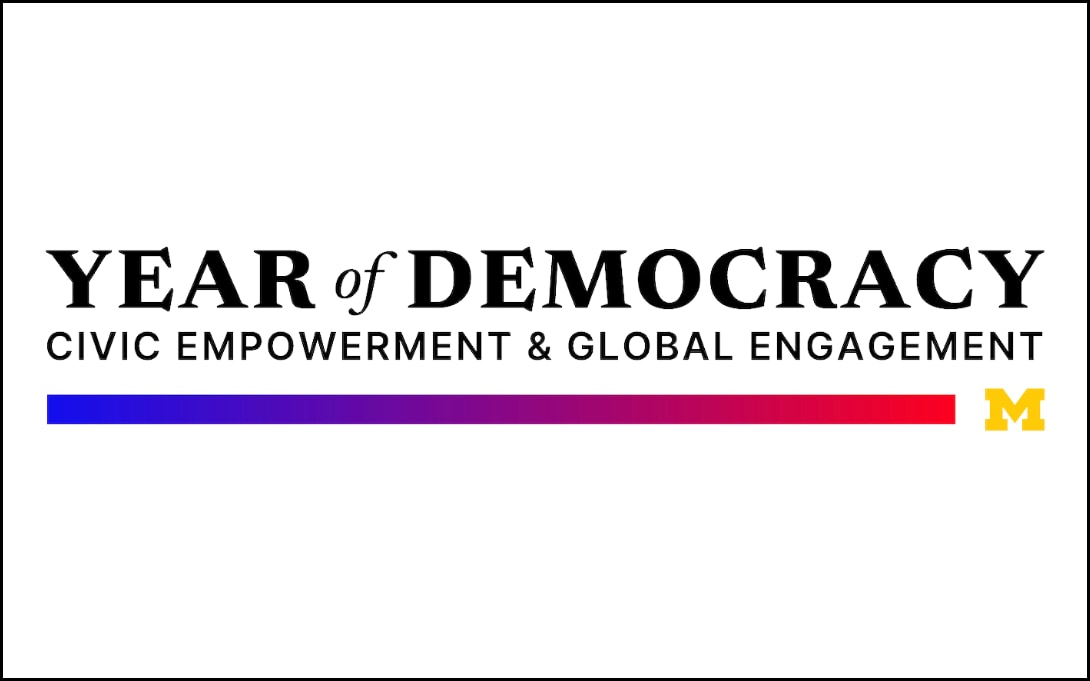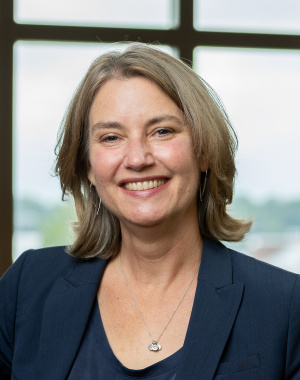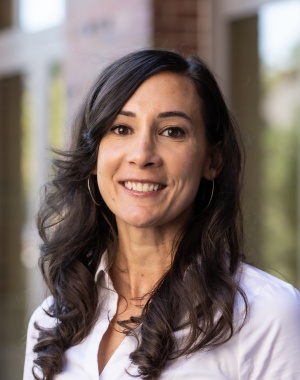
Five faculty-led research projects from across the University of Michigan have received Presidential Awards for Understanding Democracy to enhance understanding of democracy’s operation and promise. The awards are part of the universitywide Year of Democracy, Civic Empowerment, and Global Engagement.
“These Presidential Award recipients highlight the richness of U-M’s expertise on democracy, drawing from a wide range of disciplines and uplifting transformative research,” said Jenna Bednar, co-chair of the Year of Democracy, professor of political science in LSA, and professor of public policy in the Gerald R. Ford School of Public Policy.
With these new awards, the Year of Democracy has now allocated over $525,000 in funding to research, events and teaching opportunities across the Ann Arbor, Dearborn and Flint campuses.
Launched in June 2024, the Year of Democracy, Civic Empowerment and Global Engagement fosters a culture of learning and curiosity to work together for a flourishing democracy for all. This universitywide initiative uplifts expertise, events and learning opportunities for the university community.
The Presidential Award recipients are:
Observatory of Attitudes Toward Public-Serving Institutions (OATLI)
- Sabina Tomkins, assistant professor of information, School of Information; and Ariel Hasell, assistant professor of communication and media, LSA.
- A project that will develop an open-source computational social science infrastructure for observing and understanding attitudes toward public-serving institutions and democratic systems on social media.
Learning about Executive Power in a Democracy
- Kenneth Lowande, associate professor of political science, LSA, and associate professor of public policy, Ford School.
- A first-of-its-kind pilot study of public consumption of news about executive action in the United States.
Democracy & Design
- Anya Sirota, associate professor of architecture, A. Alfred Taubman College of Architecture and Urban Planning; and Sharon Haar, Emily Lorch Collegiate Professor of Architecture and Urban Planning and professor of architecture, Taubman College; with Ishan Pal Singh, director of the Taubman Visualization Lab and lecturer III in architecture, Taubman College.
- An exhibition, catalogue and public program that explores how the design of public spaces, from public squares to hybrid forums to experimental platforms, either invites participation or enforces exclusion.
Understanding Democracy in the Age of Misinformation: A Social Network Approach
- Cesi Cruz, associate professor of political science, LSA.
- This case study of the Philippines integrates social network analysis, qualitative inquiry and lab-in-the-field experiments to examine how misinformation circulates within social networks, why individuals engage with false narratives and how interventions can be designed to promote critical engagement with information.
“Imagining Freedom”: The Relationship Between Institutional Narratives, Political Imagination and Democratic Aspirations in U.S. Territories
- Mara Ostfeld, research associate professor of public policy, Ford School; with Ignangeli Salinas-Muniz, Ph.D. candidate, political science.
- An examination of the role that institutional narratives play in perceived capacity for self-governance and democratic reform.


